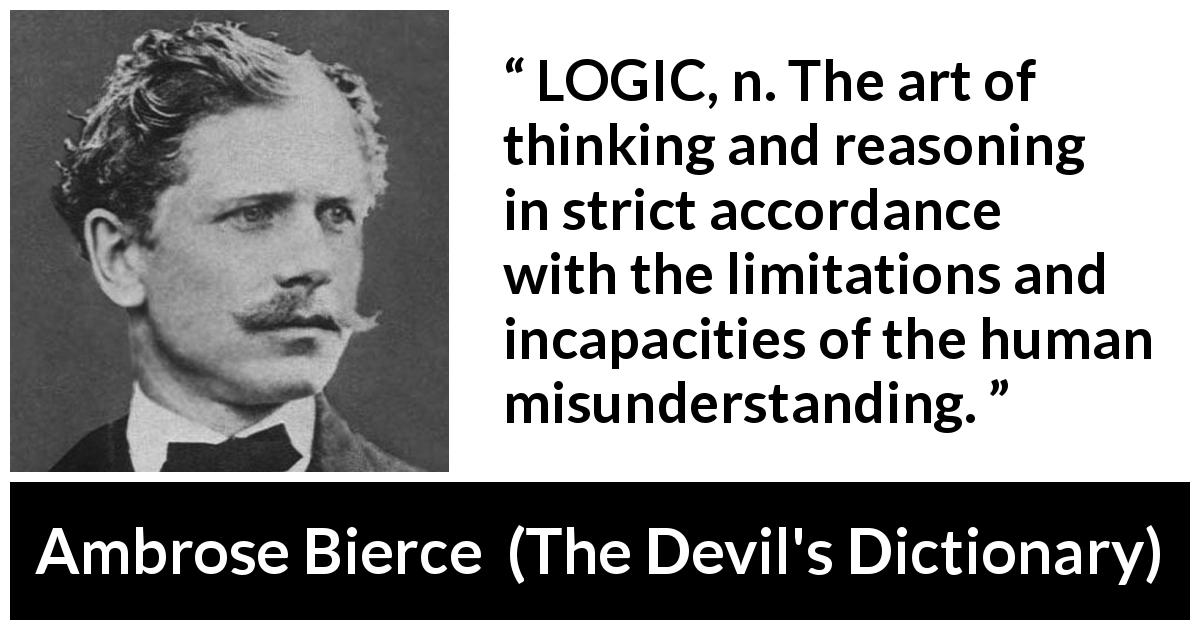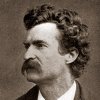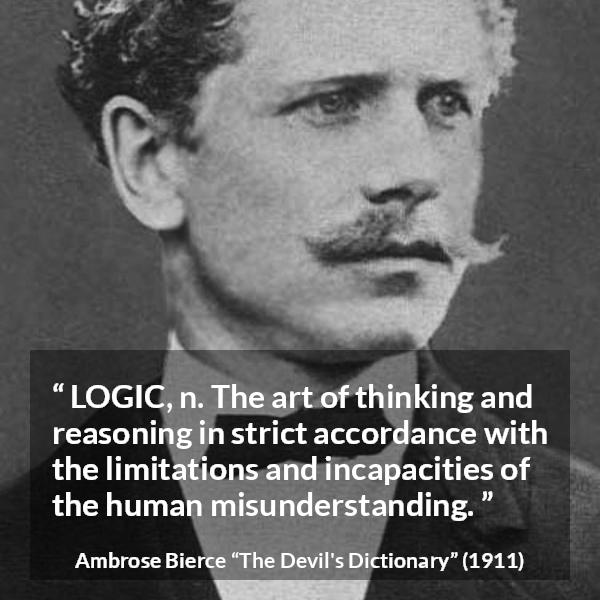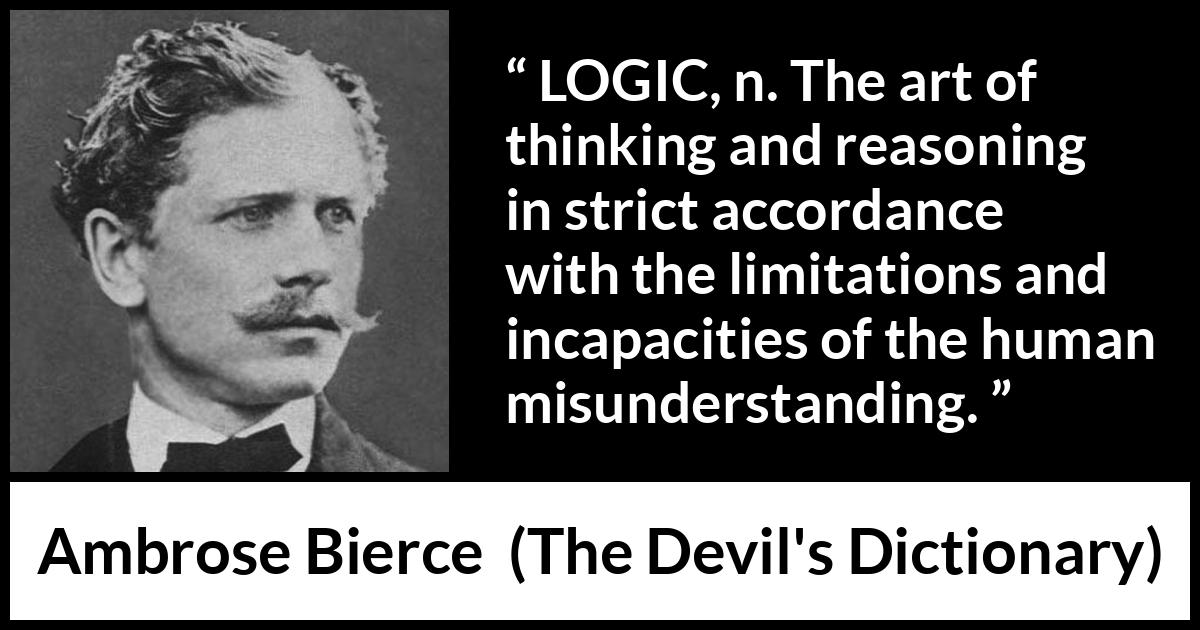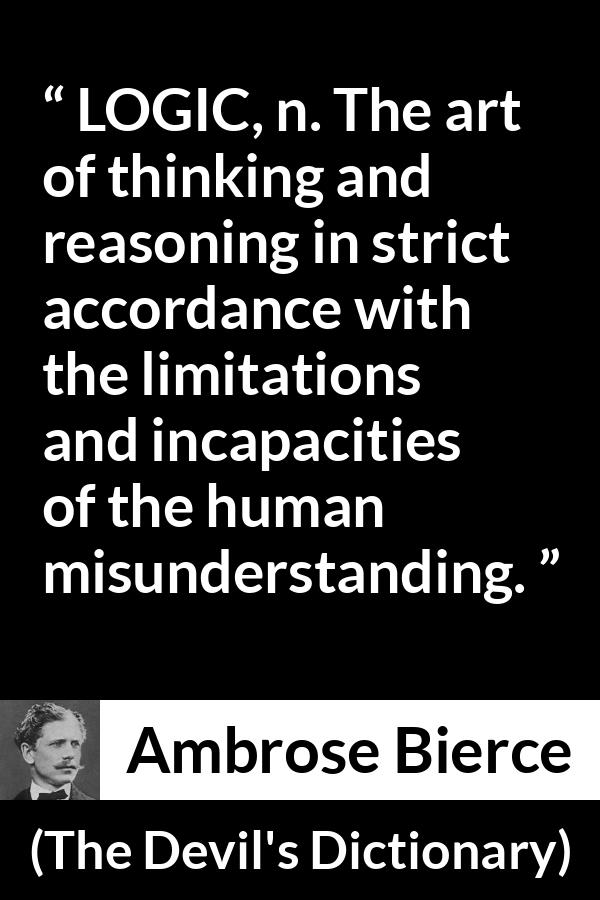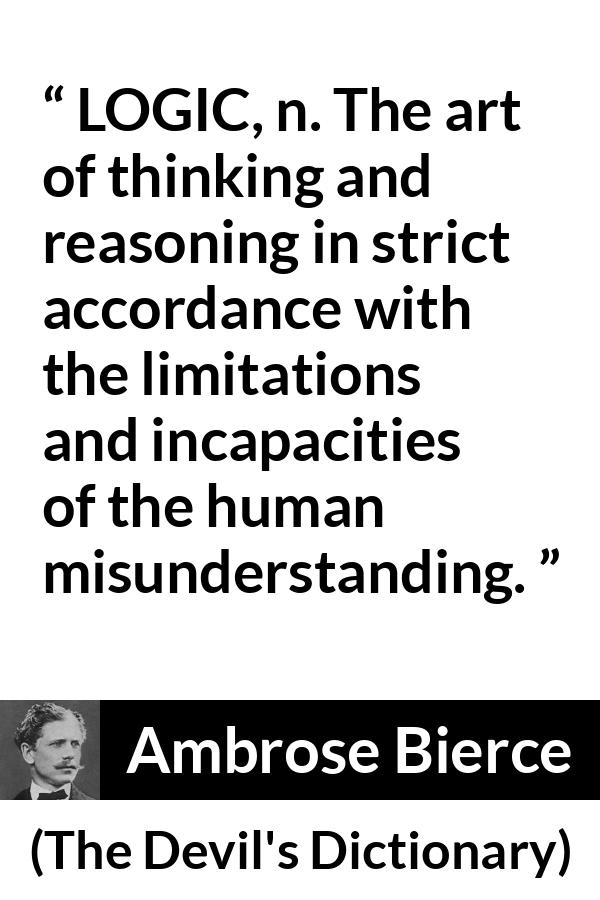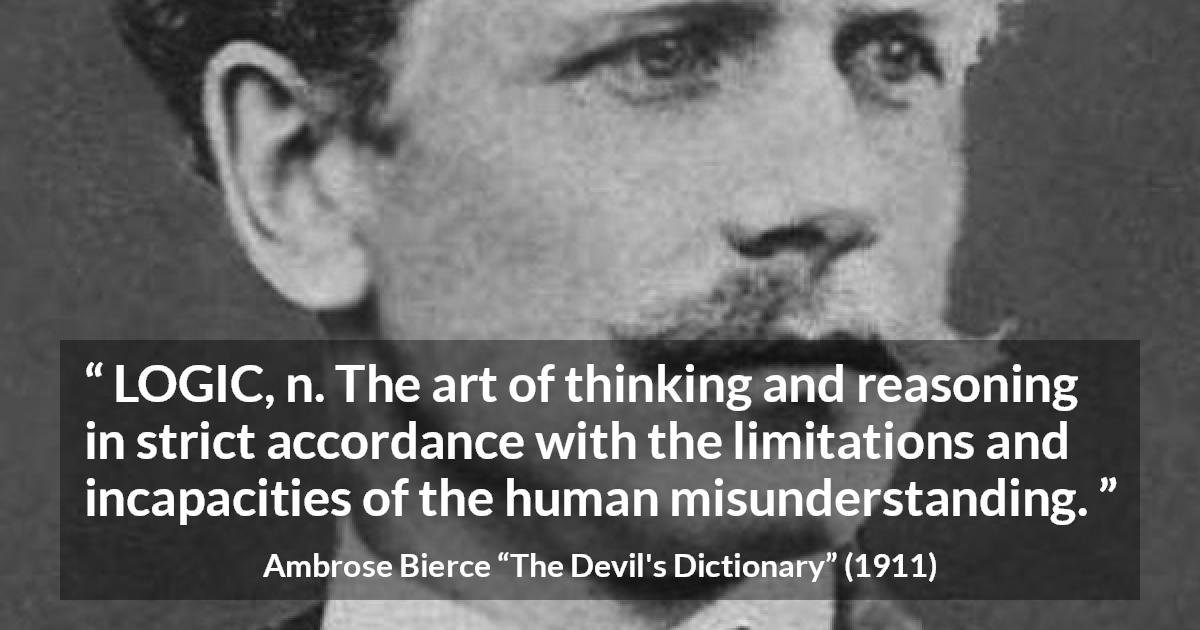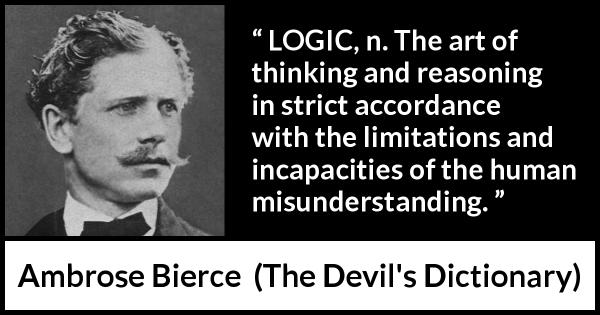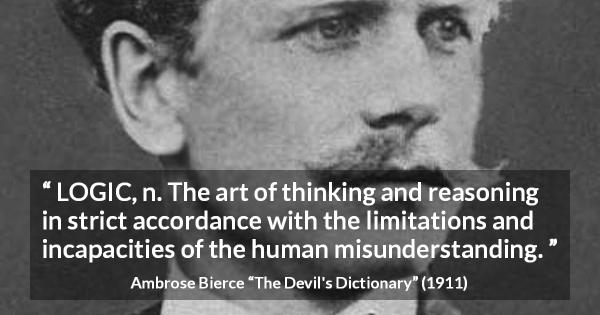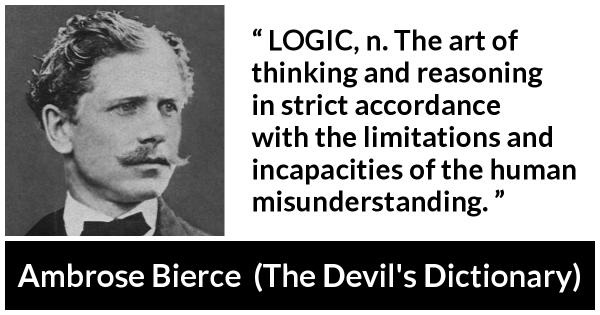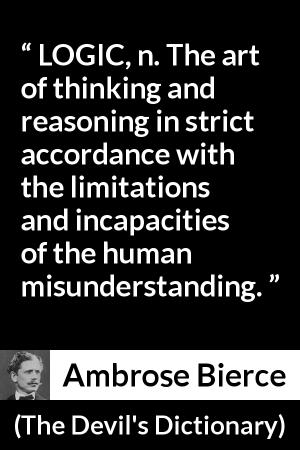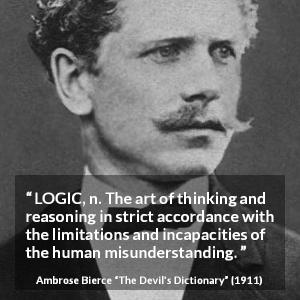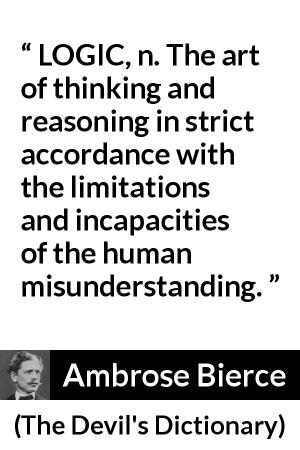“ LOGIC, n. The art of thinking and reasoning in strict accordance with the limitations and incapacities of the human misunderstanding. ”
Ambrose Bierce, The Devil's Dictionary (1911). copy citation
| Author | Ambrose Bierce |
|---|---|
| Source | The Devil's Dictionary |
| Topic | misunderstanding limit logic thinking |
| Date | 1911 |
| Language | English |
| Reference | |
| Note | |
| Weblink | http://www.gutenberg.org/files/972/972-h/972-h.htm |
Context
“LOCK-AND-KEY, n. The distinguishing device of civilization and enlightenment.
LODGER, n. A less popular name for the Second Person of that delectable newspaper Trinity, the Roomer, the Bedder, and the Mealer.
LOGIC, n. The art of thinking and reasoning in strict accordance with the limitations and incapacities of the human misunderstanding. The basic of logic is the syllogism, consisting of a major and a minor premise and a conclusion—thus:
Major Premise: Sixty men can do a piece of work sixty times as quickly as one man.
Minor Premise: One man can dig a posthole in sixty seconds; therefore—” source
LODGER, n. A less popular name for the Second Person of that delectable newspaper Trinity, the Roomer, the Bedder, and the Mealer.
LOGIC, n. The art of thinking and reasoning in strict accordance with the limitations and incapacities of the human misunderstanding. The basic of logic is the syllogism, consisting of a major and a minor premise and a conclusion—thus:
Major Premise: Sixty men can do a piece of work sixty times as quickly as one man.
Minor Premise: One man can dig a posthole in sixty seconds; therefore—” source
